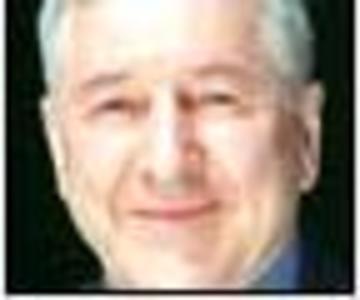 Pro-Bill 101 protesters chant 'Montréal française,' during a march in Montreal on Sunday.Photograph by: Phil Carpenter, Canwest News Service, Citizen Special
Pro-Bill 101 protesters chant 'Montréal française,' during a march in Montreal on Sunday.Photograph by: Phil Carpenter, Canwest News Service, Citizen Special
***
In his classic 1914 novel, Maria Chapdelaine, author Louis Hémon evoked "the Voice of the Land of Quebec" in a long elegiac declamation. Two sentences remained in Quebec's consciousness: "All around us foreigners have come whom we are pleased to call barbarians. They have taken almost all power, they have acquired almost all the money, but in the land of Quebec nothing has changed."
This view of the immigrant as usurper stigmatized English speakers who established logging companies, mines and the textile manufacturers. In time, immigrants speaking other languages were also seen as a threat to French Quebec's identity.
The Quiet Revolution and especially the Charter of the French Language (CFL) responded to the perceived double threat. The public sector was vastly expanded. English speakers, except in education, were almost completely excluded. Bill 101 forced the children of immigrants into French schools. The workplace, now communicating in French, would break the dominance of English. A vast exodus of English speakers ensued.
Beyond practicalities, Bill 101 deliberately created a revolutionary change of identity. The Confederation Fathers had structured Quebec with French and English on an equal footing. The CFL redefined Quebec with a French-only identity. English remained as a marginal exception. So Bill 101 established French as the only official language for passing and interpreting laws. English was to be banished from sight in stores with more than four employees. The Supreme Court would find both measures unconstitutional. But Quebec carried on much as if French were the only official language.
So why is Quebec now in the throes of an identity crisis, with manifestoes launched and counter-launched while open-line radio crackles with existential debate? Why do the political parties outbid each other as defenders of Quebec's authentic (French) identity?
The crisis has many dimensions, its most visible sign being the uproar over the niqab. Jean Charest's government rushed to introduce Bill 94, "An Act to establish guidelines governing accommodation requests within the Administration and certain institutions," that even invents a non-existent legal obligation for the state to remain secular. At Section 4 the bill states: "An accommodation must comply with the Charter of Human Rights and Freedoms, in particular as concerns ... the principle of religious neutrality of the State whereby the State shows neither favour nor disfavour towards any particular religion or belief."
This from the government that refused to remove the crucifix from the National Assembly and that gives its public servants holidays on Good Friday, Easter Monday and Christmas.
In fact, neither Quebec's charter nor any law asserts the "principle of neutrality." But now PQ Leader Pauline Marois demands in the name of "laïcité" (secularism) that subsidized nursery schools and kindergartens and all subsidized private denominational schools must abstain from promoting a religion. She would ban from the public service not just the niqab, which shows only the eyes, but even the hijab, which covers the head, but not the face. She also demands that kindergartens be subject to the same language restrictions as elementary and high schools. Recent polls show the PQ besting the Liberals in public opinion.
Quebec's original phobia was for English, and it does not sleep. On Sunday, the Société Saint-Jean-Baptiste de Montréal sponsored a demonstration attended by writers, artists and union leaders demanding that all elementary and secondary schools, even unsubsidized private schools, be placed under the language restrictions that already apply to public schools. The Charest government has hinted that it will invoke the notwithstanding clause of the Charter to bring this about.
Last week the demographic doomsday scenario was again paraded, when PQ MNA Pierre Curzi published an 85-page study of doubtful methodology titled: "Le grand Montréal s'anglicise." Not only is Greater Montreal becoming more English, he warned, but "the effects of this current anglicisation will have a long-term effect of anglicising all of Quebec." His proposals for stifling English will be published later.
Plus ça change. ... I recall René Lévesque in 1977, just before Bill 101 passed, warning that all of Quebec was set to become majority English by the year 2000.
A more serious study published last week by two University of Montreal professors demonstrated that immigrants to Quebec fare more poorly in the workforce than immigrants to other parts of Canada. Even immigrants from largely French-speaking North Africa had lower unemployment rates in Ontario than they did in Quebec.
This study is significant. It demonstrates that, in Quebec, a mind-set sees immigrants as something of a threat, even as it recognized that it needs immigrants to compensate for the low birth rate.
A survey published in March of last year, conducted by The Gandalf Group, showed that 62 per cent of people in the rest of Canada preferred to live in a neighbourhood with a wide mix of people of different ethnic backgrounds. In Quebec, though, only 38 per cent preferred to live amid diversity. "All around us foreigners have come...."
***
Journalist William Johnson is the author of Stephen Harper and the Future of Canada.
http://www.ottawacitizen.com/life/Quebec+original+paranoia/2903930/story.html
Quebec's original paranoia
The backlash against 'foreigners' has its roots in an age-old fear of English immigrants threatening the French identity
Le visage haineux des « Anglais »

William Johnson53 articles
William Johnson, a Quebec journalist, is a former president of Alliance Quebec

























Laissez un commentaire Votre adresse courriel ne sera pas publiée.
Veuillez vous connecter afin de laisser un commentaire.
Aucun commentaire trouvé